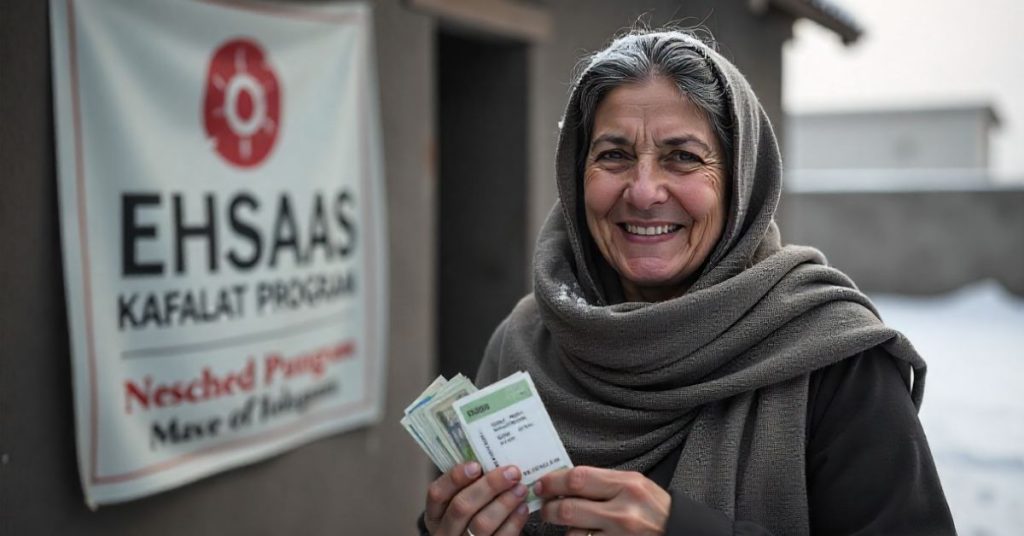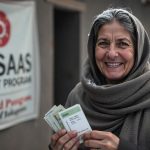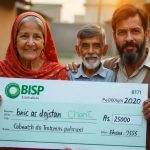Ehsaas Kafalat Program: A Lifeline for Pakistan’s Neediest Citizens
Poverty isn’t just a lack of income—it’s a lack of opportunity, security, and dignity. In Pakistan, where millions live below the poverty line, the Ehsaas Kafalat Program stands as a beacon of hope. Launched by the Government of Pakistan, this flagship welfare initiative provides direct financial assistance to low-income women and marginalized groups.
Within just a few years, the Ehsaas Kafalat Program has impacted millions of lives by offering regular stipends, digital bank access, and social inclusion. If you’re wondering what it is, how it works, or whether you or someone you know qualifies—this guide breaks it all down.
What Is the Ehsaas Kafalat Program?
The Ehsaas Kafalat Program is a government-led financial assistance initiative providing monthly cash stipends to the most vulnerable women across Pakistan. It falls under the broader Ehsaas umbrella, a poverty alleviation framework introduced in 2019.
Key Features:
-
Monthly stipend of Rs. 14,000
-
Targeted at low-income women
-
Includes access to a savings bank account
-
Funded and managed by the Benazir Income Support Programme (BISP)
Real Impact:
Over 7 million women have benefited from the program, gaining not just financial help but also digital literacy and financial independence.
How the Ehsaas Kafalat Program Works
The program uses a data-driven approach to ensure only the most deserving receive aid. It combines NADRA’s CNIC data, the National Socio-Economic Registry (NSER) survey, and mobile technology to reach recipients efficiently.
Process Flow Table:
| Step | Description |
|---|---|
| 1. Data Collection | NSER household survey |
| 2. Eligibility Check | CNIC verification through NADRA |
| 3. Registration | Via SMS (8171) or Ehsaas Centers |
| 4. Payment | Through bank cards or biometric ATMs |
Eligibility Criteria: Who Can Apply?
Priority Given To:
-
Women-led households
-
Disabled individuals
-
Widows
-
Orphans
-
Individuals below the poverty score threshold in the NSER
Who is Excluded:
-
Government employees
-
Car or landowners (above a set value)
-
Frequent international travelers
Tip: Confirm eligibility by sending your CNIC number to 8171.
How to Register for the Ehsaas Kafalat Program
Two Main Methods:
| Method | Process | Speed | Accessibility | Documents Required | Best For |
|---|---|---|---|---|---|
| SMS (8171) | Send CNIC to 8171, wait for reply | Fast | Mobile phone needed | CNIC only | Quick checks |
| In-Person | Visit Ehsaas Center with CNIC + documents | Slower | Physical travel | CNIC + supporting docs | Rural or complex cases |
Payment Methods and Access to Funds
Stipends are delivered through biometric-enabled bank accounts for transparency.
Partner Banks:
-
Habib Bank
-
Bank Alfalah
Access Methods:
-
Biometric ATMs
-
Bank branches
-
Designated Ehsaas Payment Centers
Recipients also receive savings bank accounts to promote financial discipline.
Role of NADRA and NSER in the Program
-
NADRA: Verifies CNICs.
-
NSER: Determines economic need using household surveys and poverty scoring.
Why It Matters:
-
Assigns a poverty score based on income, assets, and education.
-
Updates every few years to maintain accuracy.
Source: BISP.gov.pk – NSER Details
How the Ehsaas Kafalat Program Empowers Women
The program promotes:
-
Female financial literacy
-
Economic participation
-
Household decision-making
Case Study:
Ayesha, a widow from Multan, used her stipend to start a home-based stitching service. Within a year, she became self-sufficient and enrolled her daughter in school.
Key Challenges and How the Program Addresses Them
Challenges:
-
Technical glitches in biometric systems
-
Low digital literacy
-
CNIC registration delays
-
Accessibility issues in remote areas
Solutions:
-
24/7 helpline for complaints
-
Mobile vans for registrations in remote areas
-
NADRA mobile units for CNIC updates
Program Expansion and Future Goals
Recent Updates:
-
Increase in stipend
-
Integration with health insurance under Sehat Sahulat
-
Plans to include transpersons and elderly citizens
Goal:
Expand to 10 million beneficiaries by 2026, achieving full digital inclusion.
How to Stay Updated and Avoid Scams
Red Flags:
-
Calls asking for money
-
Fake messages not from 8171
-
Requests for info via WhatsApp or social media
Safe Practices:
-
Verify from official sources
-
Never pay for registration
-
Call 0800-26477 for official help
FAQs
1. Is the Ehsaas Kafalat Program still active in 2025?
Yes, with increased stipends and broader coverage.
2. Can men apply?
Only if disabled or caretakers of orphaned children.
3. What if I lose my CNIC?
Get a replacement from NADRA before applying.
4. Are there any fees?
No. Registration is free.
5. How often are payments made?
Quarterly (every 3 months) — Rs. 14,000 per payment.
Conclusion
The Ehsaas Kafalat Program is more than a welfare scheme—it’s an investment in human capital. By empowering women and vulnerable citizens, it builds a pathway toward economic independence and social inclusion.
For those eligible, taking the time to register and understand the process can unlock a much-needed safety net. For citizens and stakeholders, it’s crucial to stay informed, engaged, and vigilant—because programs like these shape the future of social welfare in Pakistan.







